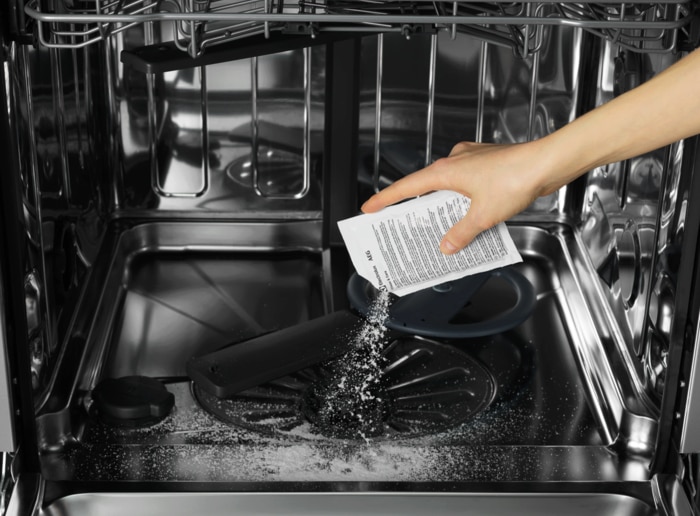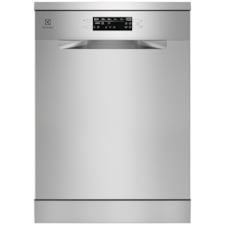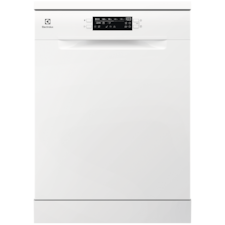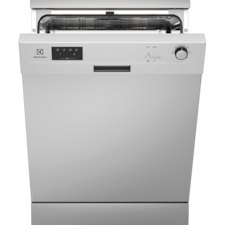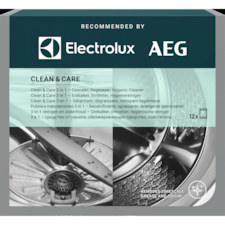Dishwashers have become a staple in modern kitchens, saving time and water while delivering consistently clean dishes. But the secret to their performance often lies in something smaller—your choice of dishwasher detergent. With powders, pods, and gels all claiming to offer spotless results, it can be tough to know which one truly suits your machine, water type, and dishwashing habits.
In this guide, we’ll break down the different types of dishwasher detergent, explain what to look for based on your kitchen needs, and share practical tips to help you get the most out of every cycle.
What type of dishwasher detergent is best?
When it comes to dishwasher detergents, the right choice depends on your cleaning needs, budget, and dishwasher habits. Let’s break down the three most common types—powder, tablets, and gel—to help you find the best fit for your kitchen.
1. Dishwasher powder
Dishwasher powder detergent is a loose, granular form typically poured into the detergent compartment. It’s one of the most traditional types and gives users the freedom to adjust how much they use.
Pros:
- Cost-effective: It’s often the cheapest option per wash, making it budget-friendly for regular use.
- Custom dosage: You can adjust the amount based on how dirty your dishes are or the load size.
Cons:
- Prone to clumping: In humid environments or if not stored properly, the powder can clump or cake.
- Less precise: Overuse may cause soap residue; underuse may result in unclean dishes.
- No extras: It doesn’t include rinse aid or salt, so you’ll need to add those separately.
2. Dishwasher tablets
Tablets are compact blocks of detergent, often pre-measured and packaged in dissolvable film. Many contain built-in rinse aid and dishwasher salt, making them an all-in-one solution.
Pros:
- Convenient: No measuring or spilling—just drop one in and start the cycle.
- Multi-functional: Premium tablets often include degreasing agents, glass protectors, and even machine-cleaning additives.
Cons:
- Less control: You can’t adjust the amount for smaller or lightly soiled loads.
- Higher cost per wash: Convenience and added features usually mean a higher price tag.
- Not ideal for quick washes: Some tablets don’t dissolve fully in very short cycles.
3. Dishwashing gel
Gel detergent is a thick liquid that pours easily and dissolves quickly. It’s great for users who want more control but prefer a mess-free option compared to powder.
Pros:
- Fast dissolving: Ideal for quick or eco-friendly wash cycles.
- Easy to dose: You can use as much or as little as you need with minimal mess.
Cons:
- Less powerful on grease: May not perform as well as powder or tablets on heavily soiled items.
- Can leave residue: If overused or paired with hard water, it might leave a filmy coating on glassware.
- Requires extras: Like powder, it may need separate rinse aid or salt for optimal performance.
How to choose the best dishwasher detergent?

Selecting the right dishwasher detergent isn’t just about clean plates, it’s about matching your detergent to your dishwasher, water type, and household needs. Here’s how to make a choice that ensures optimal cleaning performance every time.
Dishwasher capacity
For smaller dishwashers, powders and gels offer flexibility. You can easily adjust the amount of detergent based on the size of your load. On the other hand, dishwashing tablets work best with full loads and large-capacity dishwashers, where pre-measured dosing matches the water and dish volume.
Water hardness
Hard water contains high levels of minerals like calcium and magnesium, which can lead to spots, residue, and reduced detergent performance. In these conditions, tablets with built-in salt or rinse aid are ideal. Soft water users can often get excellent results from powders or gels, though adjusting with additional rinse aid can still help.
Detergent pH
The pH level of a detergent influences how it tackles stains. Alkaline detergents (higher pH) are more effective at removing grease and protein residues, while slightly acidic ones (lower pH) are gentler on glass and sensitive materials. Knowing the pH balance can help if you regularly wash delicate or heavily soiled dishes.
Dishwasher model compatibility
Always consult your dishwasher manual for detergent recommendations. Some machines, especially newer or high-efficiency models, may perform best with tablets that dissolve fully at lower temperatures or within eco cycles.
Explore Electrolux’s range of dishwashers and find the model that best complements your detergent choice and cleaning habits.

